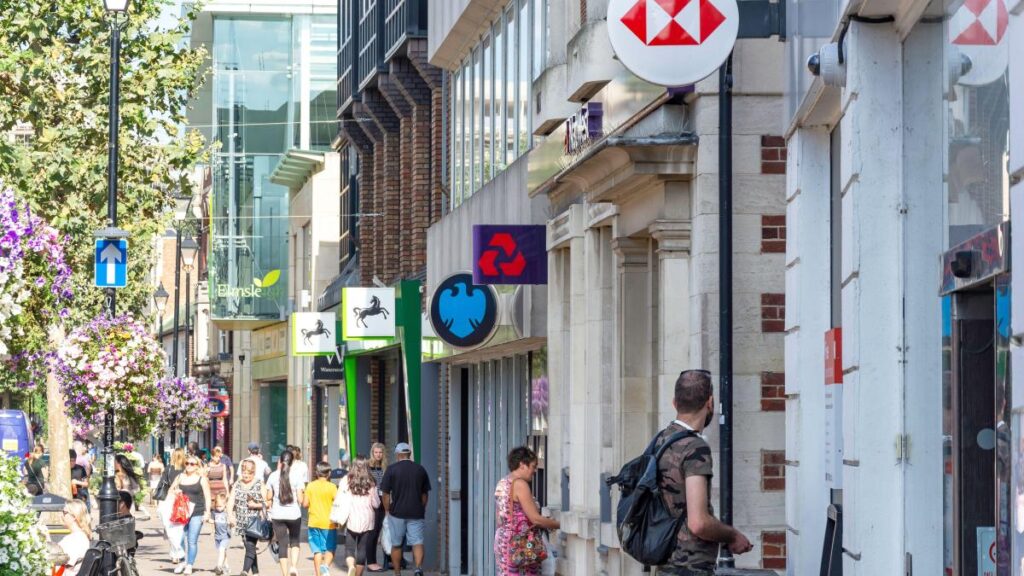Europe’s largest airline has raised its forecast for passenger numbers this year on the back of strong demand from travellers and early aircraft deliveries from Boeing.
Ryanair expects passenger traffic to grow by more than 3 per cent to 207 million over the 12 months to March, up from a previous forecast of 206 million.
Pre-tax profits over the first six months of the year rose 40 per cent to €2.89 billion, boosted by a 13 per cent increase in average fares and 3 per cent growth in passengers. Analysts had forecast profit of €2.5 billion.
Michael O’Leary, Ryanair’s chief executive, said the airline “cautiously” expected to recover all of last year’s 7 per cent average fare decline this year, which should lead to a “reasonable” net profit growth.
Ryanair’s shares have risen 42 per cent since the start of the year, compared with a 14 per cent decline for easyJet and 26 per cent fall for Wizz Air.
Stock markets rise on trade truce optimism
Asian stock markets rose today as the US-China trade truce and rising investment in artificial intelligence buoyed risk sentiment, while the dollar was around a three-month high on easing rate cut bets after hawkish comments from US policymakers.
Data showed big manufacturing hubs in Asian struggled to fire up in October as weak US demand and tariffs hit factory orders across the region.
South Korea’s Kospi surged more than 2 per cent to another record high. China’s SSE Composite rose 0.5 per cent and Hong Kong’s Hang Seng Index gained 1 per cent. Markets in Japan were closed for a holiday.
European futures pointed to a higher open ahead of manufacturing data from the region. The FTSE 100 is forecast to open 15 points higher, after closing down 43 points, or 0.4 per cent, at 9,717.25 on Friday.
The banks paying savers the least interest
Metro Bank, HSBC, Lloyds and Barclays are among the UK banks offering some of the poorest returns to savers, according to new analysis by Which?. The consumer group said the banks all languish at the bottom of its league tables for interest rates.
The analysis, based on 12 weeks of interest rate data between June and August, found that Metro Bank offered the least competitive rates in the group’s interest rate analysis, with its instant savings account paying just 0.9 per cent — the poorest return on the market.
HSBC’s Flexible Saver, which offered 1.33 per cent over the summer, has since been trimmed to 1.15 per cent, while Lloyds, along with its sister brands Bank of Scotland and Halifax, cut instant-access rates from 1.2 per cent to 1.1 per cent in the same period. Barclays’ instant access savings account offered 1.16 per cent during the analysed period, but now pays 1.06 per cent.
Oil rises as Opec+ holds output increases next year
Oil prices climbed on today after Opec+ producers decided to hold off production increases in the first quarter of next year, easing concerns of a supply glut.
The benchmark Brent crude futures contract rose 47 cents, or 0.7 per cent, to $65.23 a barrel after closing 7 cents higher on Friday. West Texas Intermediate crude was at $61.19 a barrel, up 21 cents, or 0.34 per cent, after settling up 41 cents in the previous session.
The gains were capped by weak factory data in Asia.
The Organization of the Petroleum Exporting Countries and their allies, known as Opec+, agreed on Sunday to raise output by 137,000 barrels per day in December, the same as for October and November.
“Beyond December, due to seasonality, the eight countries also decided to pause the production increments in January, February, and March 2026,” the group said.
Warren Patterson, ING’s head of commodities research, said the decision appeared to be an acknowledgment of the large surplus that the market faces, particularly through early next year. He said there was still “plenty of uncertainty over the scale of the surplus” dependent on how disruptive US sanctions will be to Russian oil flows.
Student landlord expects booking to moderate
Empiric Student Property has warned that bookings for its student accommodation for the current academic year have continued to “moderate”, which will make it “challenging” to hit its occupancy target for the year.
Unite, which agreed a £634 million takeover for its smaller rival this year, said it had assumed lower occupancy rates and rental growth than the previous year in its offer price.



